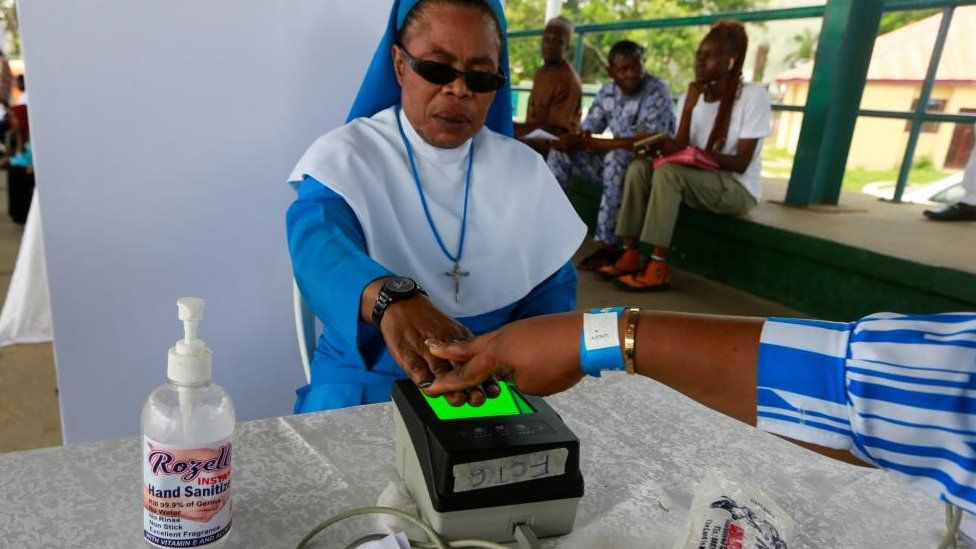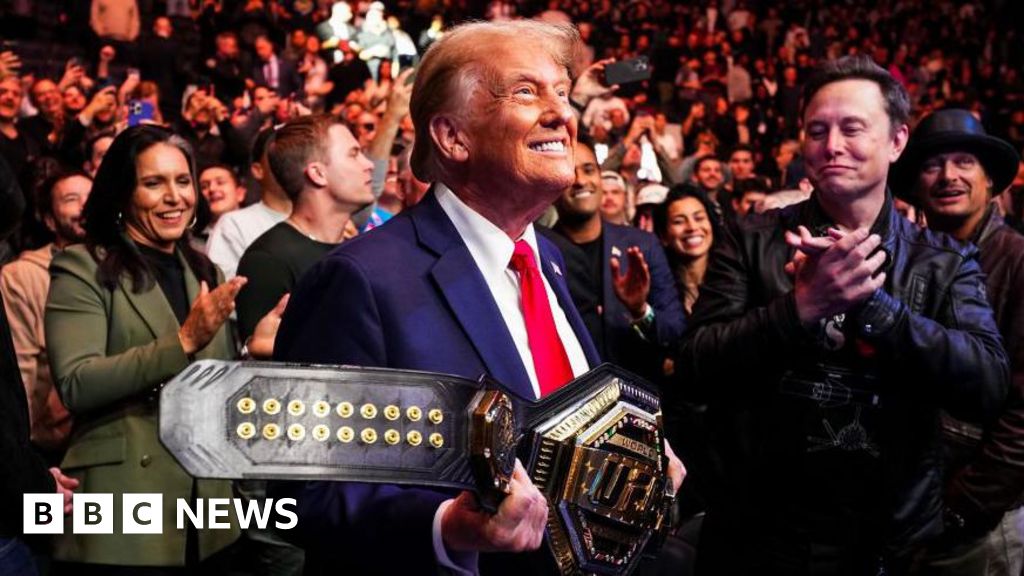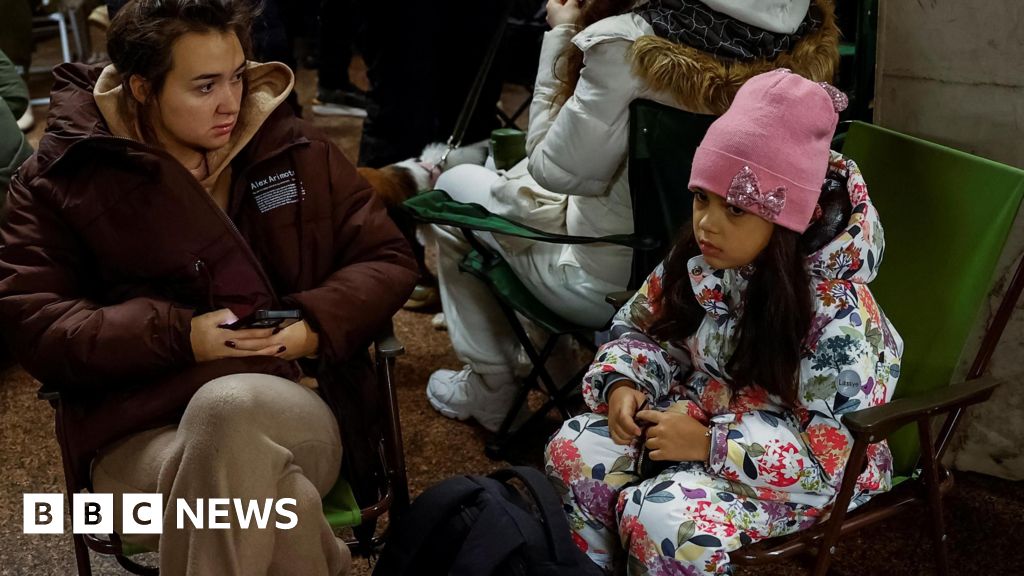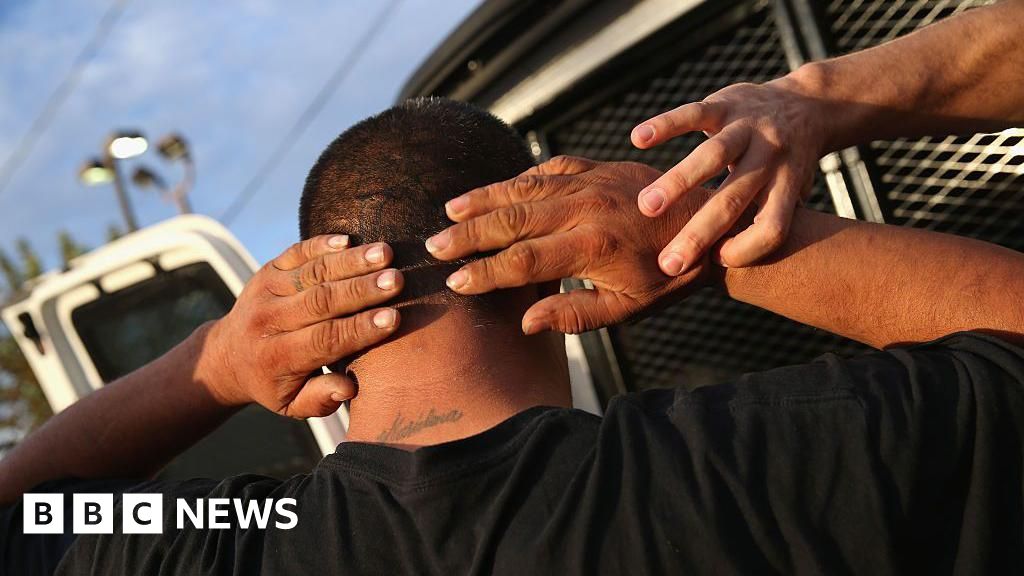ARTICLE AD BOX
 Image source, Reuters
Image source, Reuters
Voters' fingerprints were taken when they went to register earlier this year
By Nduka Orjinmo
BBC News, Abuja
As soon as Nigeria's first-ever digital electoral register was uploaded on to the internet people began noticing problems.
Amateur digital sleuths uncovered numerous voter cards that appeared to have photos of children on them. Others on the preliminary list seemed to have registered more than once, simply by changing their facial expression, clothes or the way they were sitting.
The legal minimum voting age is 18 and by registering children as well as getting people more than one vote, crooked politicians can inflate their support.
Questions are now being asked about how these duplicate would-be voters slipped through the expensive fingerprint and facial recognition technology that was recently introduced.
Details such as age, gender, fingerprints and photos were taken at the registration centres of the Independent National Electoral Commission (Inec) with hopes of eliminating such problems.
In next February's hotly contested general election any discrepancies could be the difference between victory and defeat.
Problems were 'obvious'
Just by looking at the voter cards it is easy to tell that some of them carry the image of the same person but somehow Inec staff could not pick this up.
"It was so obvious that you don't need any scientific process to identify the underage voters who registered," said Sunny Dada from the Institute for Media and Society in Lagos.
A total of 23 Inec officials are now being investigated for their alleged roles in the illegal registrations.
It has not been uncommon in the past for the dead to turn up on the electoral register as deaths are not always officially recorded, but it was the appearance of children and those registering multiple times that caused widespread concerns.
The problems, which have been documented in past elections, have now become glaring with the innovation of a digital register.
In the past, only hard copies of the register were available and as they were posted on the walls of polling units or local council buildings, it was hard to build a national picture.
Image source, AFP
Image caption,Only hard copies of the voters' register were available in the past and had to be inspected at local polling stations
But now, the first digital register allows anyone anywhere to scrutinise the details of a record 93.5 million people - nine million up from last time - who have registered to vote.
Tech-savvy young Nigerians have taken up the challenge and have developed techniques to trawl through the huge data set looking for irregularities.
One digital detective said on Twitter that they discovered thousands of multiple registrations, another tweeted a prototype of an age predictor that could weed out children from the register.
Journalist Jaafar Jaafar chose a more difficult route, manually inspecting hundreds of thousands of names and faces on the register.
"Any page that had a landscape rather than portrait photo or photos of people laughing raised red flags for me," he told the BBC.
Some of those who were underage or had registered multiple times had first got on the list as far back as 2011, he said.
Arguably, the transparency of the preliminary digital register is a sign that the process is working as Inec is obliged to respond to objections to names on the list.
The commission said it welcomed the "help" of Nigerians to clean up the register and a corrected list would be released before the 25 February elections.
But when it released the preliminary list in November it said it had already cleaned it up in the three months following the end of the registration period.
Conspiracy theories
Officials said they had spotted and scrubbed 2.7 million incorrect entries, yet underage or duplicate registrations are still being uncovered.
As a result many have been disturbed by the recent discoveries by ordinary citizens and some have unleashed a stream of conspiracies.
In a vast country where people are very sensitive to regional divisions, there have been accusations that Inec has favoured the north, where people have historically voted in large numbers.
Many have pointed out that Inec's clean-up mostly affected voters in southern Nigeria. For example, in Bayelsa state almost 70% of new registrations were invalidated over discrepancies.
But underage and multiple registrations have been spotted across Nigeria, and many have also been unearthed in the south.
"It is a nationwide phenomenon, there are so many irregularities with the register," said Mr Jaafar from northern Kano state, adding that part of his motivation was to debunk such conspiracies.
Many, like Mr Dada, are concerned about these issues when the election is just months away, but Inec chairman Mahmood Yakubu has moved to assure Nigerians that no underage voter will cast a ballot.
Image source, Reuters
Image caption,People had to queue for a long time in some places in order to register to vote
Nigeria has had many problems with the electoral process in the past and it was thought that the introduction of new electronic technology would make things easier, but there have been challenges.
More than seven million people who filled out the initial online form before the portal closed in July could not go on to complete a physical registration at Inec offices, where there seemed to be a shortage of personnel and machines used to capture voters' details.
Also, millions of newly registered voters have not received a card that will enable them vote next year, though Inec has assured the public that they will be ready from mid-December.
The presidential election will also be the first time results from polling units can be viewed in real time and transmitted electronically to Inec headquarters in Abuja, using technology that was highly praised by observers after it was trialled at state elections in Osun, Ekiti and Anambra states.
The Bimodal Voter Accreditation System is an electronic device that authenticates voters on election day using details, such as fingerprints, taken by Inec during registration to ensure that only those who are eligible get to vote.
Many believe it makes elections harder to rig, and despite repeated protestations against its use, especially from the governing APC party, which says it might not work in rural areas where internet connection is poor, Inec has said there is no going back.
But as the preliminary register has shown, technology cannot provide a solution to all the problems associated with credible elections in Nigeria.
"We thought it would solve the challenges of underaged voters and multiple registrations. But as we have seen, technology has its limits especially when you have officials that are willing to be corrupt," said Mr Dada.

 1 year ago
22
1 year ago
22








 English (US)
English (US)